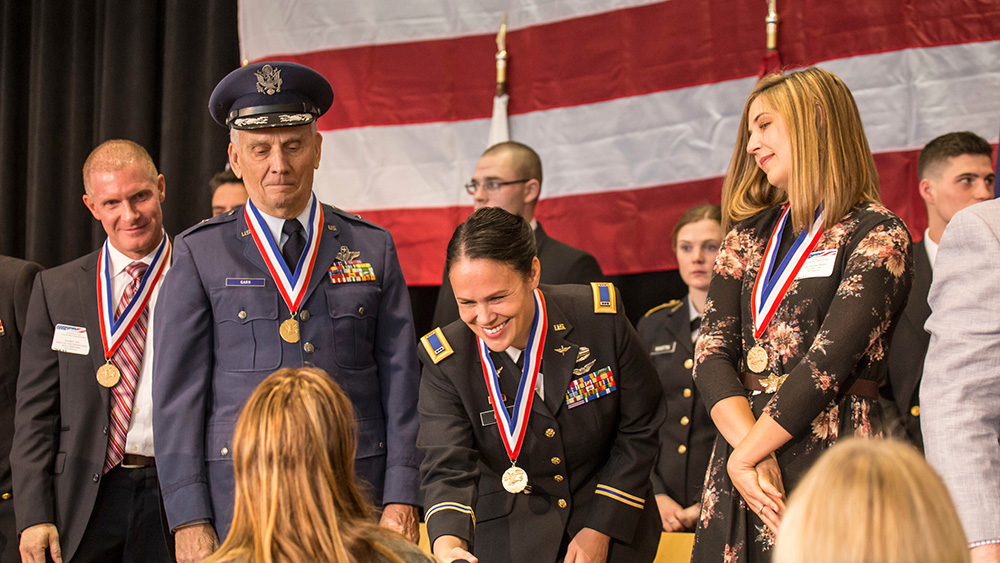
BRENDEN BORROWMAN
« Back to Honorees
Brenden Shadow Borrowman found out very early in life that the world can be a cruel place. Abandoned by his mother and left with an alcoholic father as a child, Borrowman turned to the streets for survival and witnessing a friend’s tragedy, the 15-year-old turned to his grandpa, an old Navy man took who took him to see a recruiter. This is where his military story begins.
Borrowman was the youngest person to attend OSUT (One Station Unit Training) at Fort Knox, Kentucky, and was simply known as “Kid.” His “street attitude” carried him through 18 months of intense training to become a Cavalry Scout. When his unit deployed to Iraq, he delayed waiting for the birth of his son which forced his transfer from being a sniper with a Black Hawk unit to overwatch a Special Forces team riding Humvees. “I had trained only to deploy,” he said. “I had to catch up quickly.”
Assigned to the 206 TIC (Troops in Combat), his team experienced constant fire; averaging three to four attacks a day. In the four and a half months in theater, Borrowman was medevacked three times where the third injury ended his combat career.
While stationed along the Pakistan border, his unit was sent to strike multiple high-value targets. What was supposed to be a quick “in and out” mission, turned into a three-and-a-half-hour firefight for their lives. While clearing a village vineyard, Borrowman’s crew was forced down the “killer funnels” of the grape rows that turned out to be a complex ambush taking out several of his crew. At the same time Borrowman took a round through his backpack, two more hits to his chest plate, forcing him to the ground when another team member tripped the pressure plate on an IED setting off the bomb in Borrowman’s face. Aside from a few scars on his hands, there are few little physical reminders, however, it was the traumatic brain injury that really changed the course of his life.
It took years for Specialist Corporal Borrowman to retrain his body and reprogram his brain. Today, he’s back to fighting form, and has earned a PhD. He currently works with a team of experts to develop successful treatments to help veterans and others suffering with mental health issues.
“I grew up in an environment where most people end up dead or in jail. I was able to leave because of the military,” said Borrowman. “My life and trauma have led me to where I’m at today. I don’t regret any of it.”

